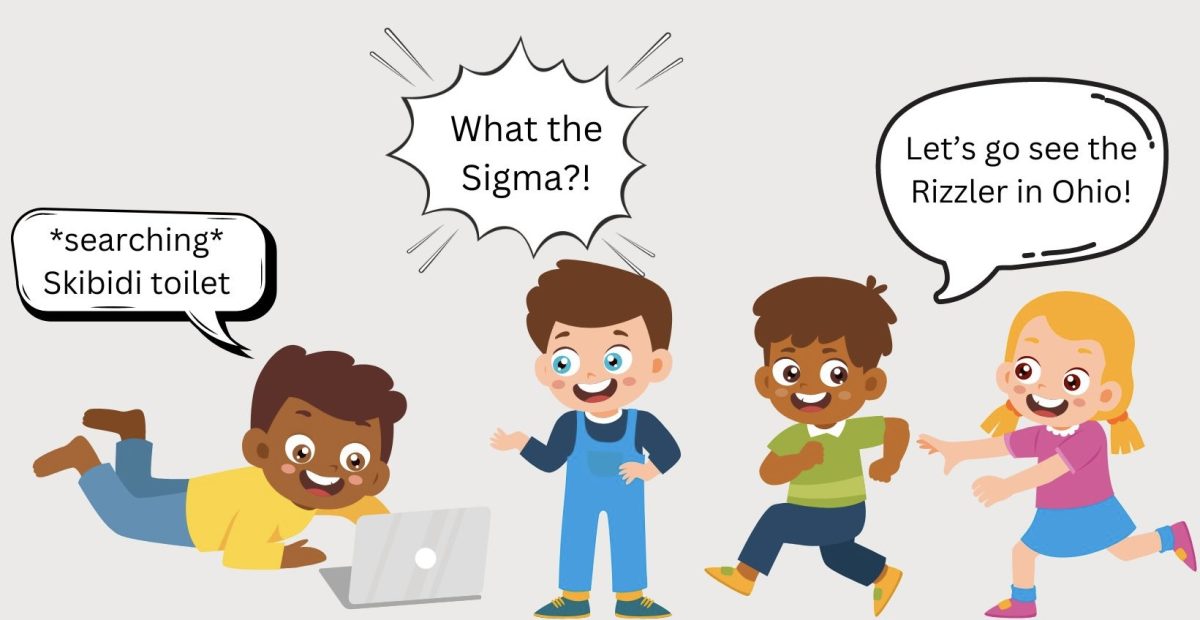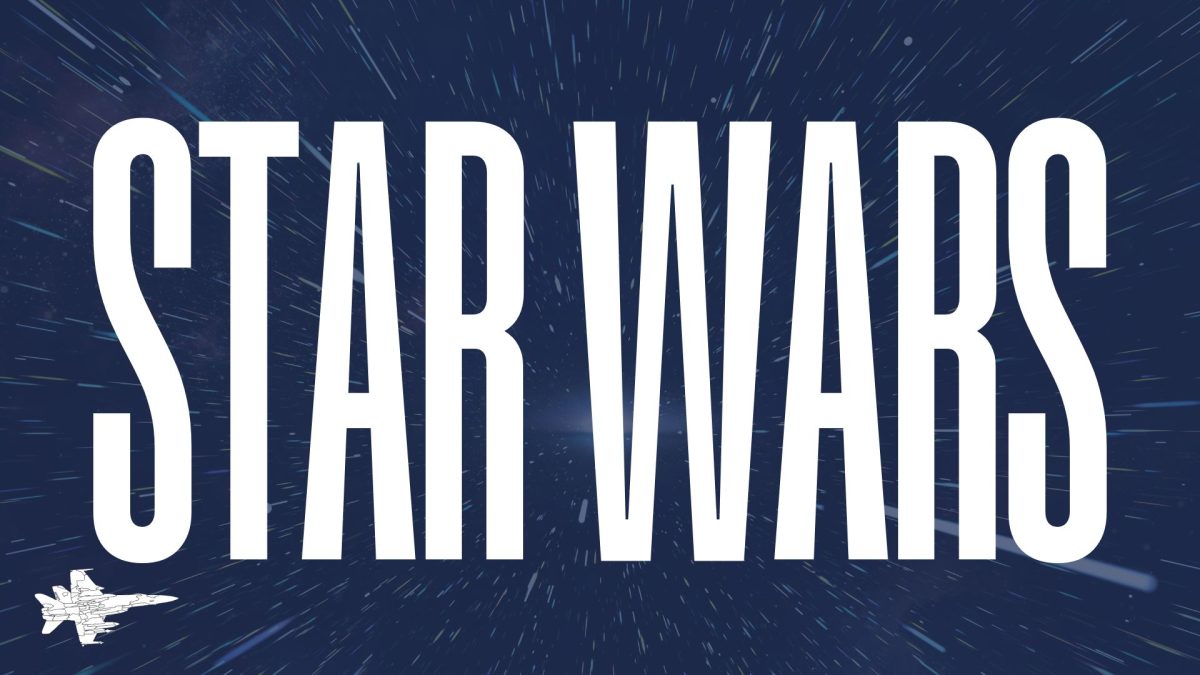Although I don’t like it, I tend to perceive myself as being “chronically online.” However, at a recent family gathering this summer, I found myself completely taken aback by conversations with my family members who work with elementary school students. As they chatted about what “skibidi” moments were and how students claimed to “mog” their classmates, I realized I was lost in a sea of not just unfamiliar terms but all of the bizarre uses for them. This cancerous linguistic whirlwind is the hallmark of Generation Alpha — those born between 2010 and 2025. As the first generation to grow up fully immersed in the digital age dominated by short-form video content (TikTok, Instagram Reels, Youtube Shorts), Gen Alpha is developing a unique vernacular at an unprecedented pace. Their slang, deeply rooted in an even shorter, faster internet culture than their Gen Z predecessors, is evolving faster than ever before, creating a growing communication gap between generations. As Gen Alpha enters adolescence, we face a crucial question: How can we bridge this linguistic divide to ensure meaningful intergenerational communication? And what did my roommate mean by “What the Goon?”
Gen Alpha’s slang is a product of their hyper-connected digital world. Terms like “skibidi,” which originated from a surreal YouTube series about sentient toilets with each average episode easily passing the 20, 30 and often 40 million view count threshold on YouTube alone, have even spawned talks of a Michael Bay film adaptation in the future. It’s often strangely common how quickly nonsensical phrases can become everyday speech. “Sigma,” once known only as a Greek letter, then an online incel term for “lone wolves outside the social hierarchy,” is now used by Gen Alpha to mean practically anything vaguely cool or dominant. “Rizz,” short for charisma, has even entered the Merriam-Webster dictionary, which has recently highlighted how internet slang has been seeping into mainstream language through sheer brute force.
The rapid turnover of these terms is striking. What’s trendy today might be “cringe” or “Ohio” tomorrow. This language trend, often dubbed “brainrot” by Gen Alpha themselves, reflects the fleeting, and compounding nature of hyperreactive internet culture. Words like “gyatt,” “Fanum tax” and “mewing,” emerge from extremely varied and specific online contexts, spreading rapidly through platforms like TikTok and Twitch. For example, the word “mewing” is from a controversial British orthodontist’s practice.
Some terms repurpose existing words with new meanings. “Ohio,” for instance, has become synonymous with weird or cringey situations, stemming from a common “Only in Ohio” meme, which, as a filler word, is pretty creative in adapting language to fit their unique digital experiences.
A recent 2021 linguistics study done by researchers Frasasti Wahyu Nuraeni and John Pahamzah, published in journal LITERA, sheds light on a similar phenomenon. Their paper, “An Analysis of Slang Language Used in Teenager Interaction,” examines the types and reasons for slang usage among teenagers. Though Gen Alpha is younger than the subjects of this study, the research highlights key issues when discussing our English-speaking “brainrotted” youth: “The speed at which these terms spread and evolve poses a challenge for older generations. Parents and educators often find themselves scrambling to decipher the latest lingo, with new terms appearing faster than they can be understood or documented.” This language divide can lead to misunderstandings between generations. For instance, it’s pretty reasonable that a parent might be devastatingly confused when their child describes something as “skibidi Ohio” or having “mad rizz,” language completely divorced from language shared between parent and child, which is commonly called “motherese” or “parentese” when discussing child-directed speech. The generation gap in language use can also create barriers in educational settings, where teachers may struggle to fully engage with students using unfamiliar slang.
Some schools are recognizing this issue and taking steps to bridge the gap. An example is the Wildcat Tribune at Dougherty Valley High School which has created a pretty fun list and translations of slang terms for parents of Gen Alpha students. The implications of these linguistic developments extend beyond mere vocabulary differences. It signifies a shift in how younger generations process and share information, often through rapid, meme-like communication, using these words as filler words and often only tangentially for expressed or unexpressed definitions.
However, it’s important to contextualize how and where this kind of language is “viewed externally.” As Brycen Hazelip, a camp counselor working with Gen Alpha, pointed out for The UTC Echo, “He speculated that these types of terms are typical boundary-pushing in adolescence, and the kids saying them are just trying to spark a reaction.” This perspective suggests that while the specific terms may be new, the underlying behavior of gaslighting linguistic rebellion is pretty timeless.
This linguistic evolution raises questions about the future of language standardization and the potential fragmentation of communication across generational lines. The English language has often prioritized adaptability and continuous learning, but it’s hard to say how much will be stretched in an era of rapid linguistic change.
To bridge some “generational language gaps,” open dialogue and mutual learning are crucial. Older generations, if not now, will be forced to engage with language on digital platforms to understand new slang, while younger generations can practice code-switching for clearer communication. Also, educational institutions might consider incorporating discussions about evolving language into curricula, as linguists do more upcoming work on these new trends.
At the end of it, Gen Alpha’s unique slang reflects the rapid cultural changes of our digital age and their hyper-digital one. While it poses challenges for intergenerational communication, it also presents opportunities for connection and understanding. By embracing linguistic diversity and fostering open communication, we can turn this potential barrier into a bridge between generations, as the youngest speakers are the future of the English language it will have to be done, whether we all like it or not, but it’s still going to be a hard and long time before most people, or I, take someone saying “what the skibidi” seriously.
Andrew McDonald, FCRH ’26, is a history and political science double major from Sacramento, Calif.








































































































































































































Andrew McDonald • Sep 12, 2024 at 12:32 pm
Please let me know if you also have brainrot, or know someone who it effects, and if this article was mentally/spiritually damaging and why. amcdonald35@ fordham.edu
William Fredo Lucas-Jorge Jr. • Sep 19, 2024 at 11:57 am
This article is super skibidi sigma!!
Mcdonald Andrew • Sep 19, 2024 at 12:05 pm
Hello Mr Mcdonald this article has sevierely imapcted mymente al and spiritual health, with your usage of brainraot I have felt my brain get smaller and smaller, i would like if you deleted this article for the sake of not endangering the mental health of the others.
William Fredo Lucas-Jorge Jr. • Sep 19, 2024 at 12:20 pm
I would like to add some more skibidi words. Gooning, aura, fein, alpha male lone wolf.